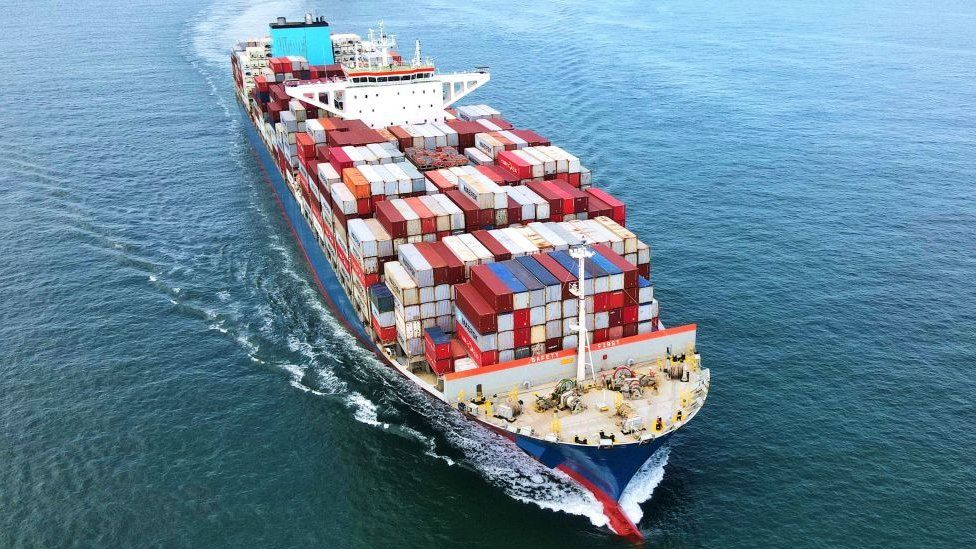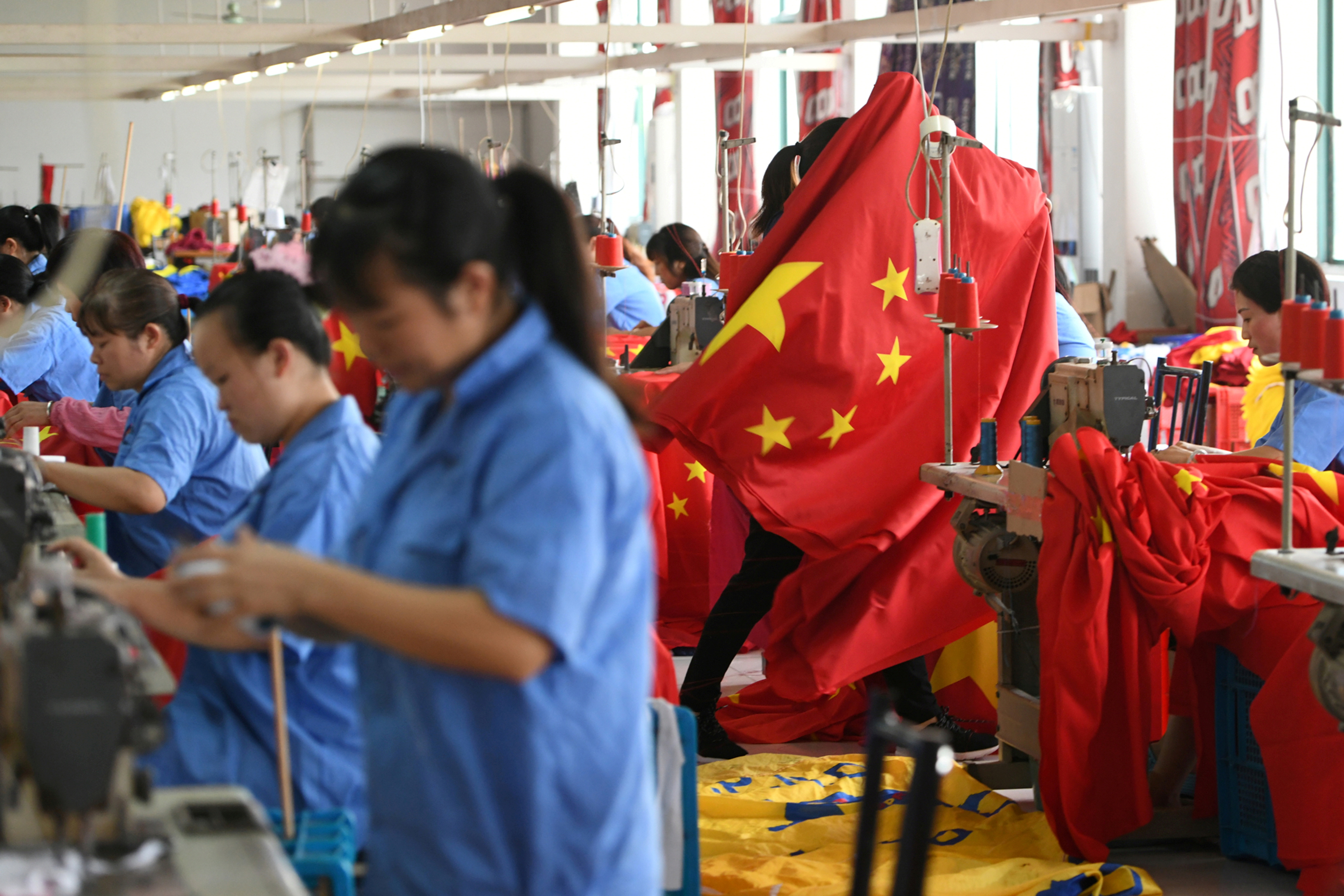Beijing's Insensible Oblivion
| China has applied to join the 11 member Asia Pacific trade pact that includes Australia, Canada, Japan and Singapore, all of whom have a veto on new membership. |
"[The U.S., Australia and U.K. are] severely damaging regional peace and stability intensifying an arms race, and damaging international nuclear non-proliferation efforts.""China always believes that any regional mechanism should conform to the trend of peace and development of the times and help enhance mutual trust and cooperation ...""It should not target any third party or undermine its interests."Chinese Foreign Ministry spokesman Zhao Lijian
 |
| Red flags flutter outside the Great Hall of the People in Beijing. China officially applied to join the Comprehensive and Progressive Agreement for Trans-Pacific Partnership last Thursday. Reuters |
Utterly mind-boggling. China is big brother to North Korea but doesn't appear to be the least bit concerned over the hermit kingdom's provocative nuclear and long-range-missile engineering, threatening its neighbours, particularly Japan. China itself has militarized the South China Sea by dredging up 'islands', claiming them as their territory despite the disputed nature of the geography, and installed military posts on the islands. China claims not only oceanic geography as its own, but airspace over them as well.
Beijing's build-up of a naval fleet meant to rival that of the wealthiest and most powerful nation on the planet is in and of itself a provocation both to its neighbours, the Philippines, Vietnam, South Korea, Japan and to the international community as it flaunts its engineering marvels in state-of-the-art naval military architecture. Beijing's relations with Australia have been harshly vindictive, using trade as a weapon, just as it does with Canada, and wielding the punishing stick of diplomacy by hostage-taking. Its sanctimonious rhetoric on 'rule of law' and 'international standards' rings rather hollow.
But the Chinese Communist Party never ceases to amaze. It may challenge its neighbour India in the Himalaya over disputed geography and unsettled territorial lines of demarcation, placing India and the world at large on edge with its belligerence, but it is never China at fault. The trade colossus has wrapped up world production in just about any consumer product conceivable.
The SARS-CoV-2 virus causing COVID-19 may or may not have slipped out of a Wuhan laboratory but China bristles at the suggestion that it acted in bad faith, closing Wuhan off to the rest of China while insisting that Chinese be allowed to travel globally without let or hindrance, else the world is 'racist'. Its stranglehold on the global pandemic as the producer of personal protection equipment, masks and ventilators caught the world off guard.
 |
| China has applied to join a key Asia-Pacific trade pact as it attempts to strengthen its position in the region. Getty Images |
Another surprise has alerted the world to China's ever-enterprising competitive trading spirit when it submitted a formal proposal to join the Comprehensive and Progressive Agreement for Trans-Pacific Partnership. The trading bloc originally led then abandoned by the U.S. under then-President Trump who was averse to any trade unions and now led by its membership's largest economy, Japan. The trading bloc comprises 500 million consumers accounting for 13.5 percent of the global economy.
Japan, Canada and Australia, all close allies of the United States and uneasily allied in the U.S.-China rivalry. "It's my view that at this time, this is not a serious overture by China. It's much more likely that China made this announcement now because of broader geostrategic events. It's important to think about the timing of China's announcement and what the potential motivations are underlying the current timing. It's also relevant that there is this growing sentiment among Western countries to counter China's rise and increasing aggression", noted Meredith Lilly, an expert on trade policy and international affairs.
Canada has just held a federal election. On the campaign trail, the major opposition party leader pledged to disentangle Canada's economy from China's trade market for exports, despite that Canada depends heavily on trade; it is primarily a trading nation. Most of its trade, import-export is directed toward the United States, its geographic neighbour. But it seeks also to diversify, and attempted to strike a trade agreement with China, that fell through. Also what fell through is relations with China whose deplorable behaviour has alienated all its neighbours. Chinese 'diplomats' snarled that should Canada's opposition leader inherit the government post-election, Canada would pay a heavy retaliatory price; typical China.
Under TPP membership rules any new entrant aspiring to join the group must first engage in bilateral discussions with each of its eleven founding members before entry can be gained; all current members in other words, must be comfortable with a new member potentially joining the group. It cannot be even remotely possible that Beijing would be unaware of its diplomatically taut and unpleasant relations with all the group's members, most of whom Beijing has insulted and threatened.
As for Canada's part in this overture by China: "The next prime minister [that] says, 'Yes, we're going to accept China' will be committing political suicide", opined senior fellow Patrick Leblond of the Centre for International Governance Innovation think tank who agrees with Lilly that it would destabilize the U.S. and its allies were President Xi Jinping's bid to join the TPP realized. All the more absurd to contemplate in the recent reality of the situation that China is railing against.
Where the U.S., United Kingdom and Australia formally entered a security alliance widely seen as an attempt to counter China's growing power. "Japan believes that it's necessary to determine whether China, which submitted a request to join the TPP-11, is ready to meet its extremely high standards", stated Yasutoshi Nishimura, Japan's economy minister. When the reality is that China makes its own standards, expecting all others to follow its example...
 |
| Workers make Chinese flags at a factory in Jiaxing, Zhejiang province, China REUTERS/Stringer/File Photo |
0 Comments:
Post a Comment
<< Home